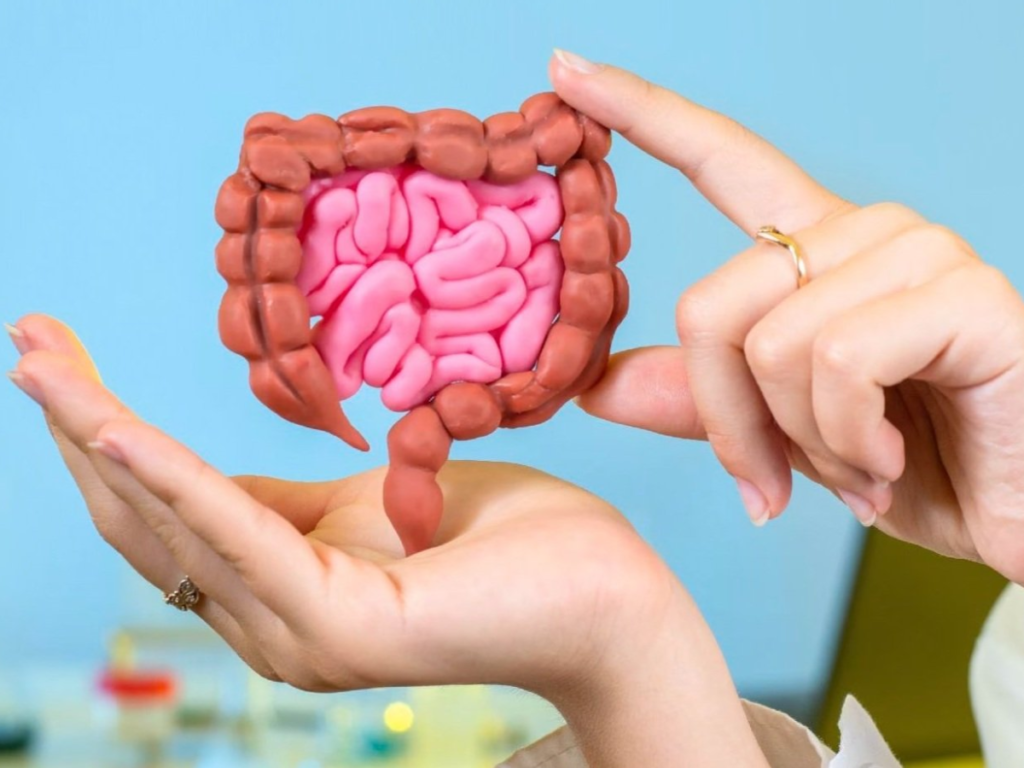
Stress is an inevitable part of life, and its effects on our overall health are well-documented. One area where stress can have a significant impact is on our digestive system. The connection between the brain and the gut is intricate and profound, often referred to as the gut-brain axis. This blog explores how stress affects digestive health and offers practical strategies for managing gut health effectively.
Understanding the Gut-Brain Axis
The gut-brain axis is a bidirectional communication system between the central nervous system (CNS) and the enteric nervous system (ENS), which governs the gastrointestinal tract. This connection explains why stress and emotions can directly influence digestive functions. Key components of the gut-brain axis include:
- Neural Pathways: The vagus nerve plays a crucial role in transmitting signals between the brain and the gut.
- Hormonal Signals: Stress hormones, such as cortisol, can impact gut motility and secretion.
- Immune System: Stress can influence immune responses in the gut, leading to inflammation and altered gut permeability.
- Gut Microbiota: The trillions of microorganisms in the gut interact with the nervous system and can be affected by stress.
How Stress Affects Digestive Health
- Altered Gut Motility:
- Slowed Digestion: Chronic stress can slow down the digestive process, leading to constipation and bloating.
- Increased Motility: Acute stress may accelerate gut motility, resulting in diarrhea and abdominal cramps.
- Changes in Gut Permeability:
- Leaky Gut Syndrome: Stress can increase intestinal permeability, allowing harmful substances to pass through the gut lining into the bloodstream. This can trigger inflammation and contribute to various health issues.
- Impact on Gut Microbiota:
- Microbial Imbalance: Stress can alter the composition of gut microbiota, reducing beneficial bacteria and promoting the growth of harmful ones. This imbalance, known as dysbiosis, can lead to digestive disorders and systemic inflammation.
- Increased Sensitivity:
- Visceral Hypersensitivity: Stress can heighten the sensitivity of the gut, making individuals more prone to pain and discomfort from normal digestive processes.
- Exacerbation of Digestive Disorders:
- Irritable Bowel Syndrome (IBS): Stress is a well-known trigger for IBS symptoms, including abdominal pain, bloating, and altered bowel habits.
- Inflammatory Bowel Disease (IBD): Conditions like Crohn’s disease and ulcerative colitis can flare up or worsen under stress.
- Gastroesophageal Reflux Disease (GERD): Stress can increase acid production and exacerbate symptoms of GERD, such as heartburn and acid reflux.
Managing Gut Health Amidst Stress
Managing gut health involves a holistic approach that addresses both the mind and the body. Here are practical strategies to help maintain digestive health in the face of stress:
- Stress Management Techniques:
- Mindfulness and Meditation: Practices like mindfulness meditation can reduce stress and promote relaxation, positively impacting gut health.
- Deep Breathing Exercises: Deep breathing techniques can activate the parasympathetic nervous system, reducing stress and promoting digestion.
- Progressive Muscle Relaxation: This technique involves tensing and relaxing different muscle groups, helping to alleviate physical tension and stress.
- Dietary Modifications:
- Balanced Diet: A diet rich in fiber, fruits, vegetables, lean proteins, and healthy fats can support digestive health and reduce inflammation.
- Probiotics and Prebiotics: Consuming probiotics (e.g., yogurt, kefir, sauerkraut) and prebiotics (e.g., garlic, onions, bananas) can help maintain a healthy gut microbiota balance.
- Hydration: Staying hydrated is essential for digestive function and preventing constipation.
- Avoiding Trigger Foods: Identifying and avoiding foods that trigger digestive symptoms, such as spicy foods, caffeine, and alcohol, can help manage stress-related digestive issues.
- Regular Physical Activity:
- Exercise: Regular physical activity can reduce stress, improve mood, and support healthy digestion. Activities like walking, yoga, and swimming are particularly beneficial.
- Movement After Meals: Light activity after meals, such as a gentle walk, can aid digestion and prevent discomfort.
- Adequate Sleep:
- Sleep Hygiene: Establishing a consistent sleep routine, creating a relaxing bedtime environment, and avoiding screens before bed can improve sleep quality and reduce stress.
- Restful Sleep: Prioritizing restful sleep helps regulate stress hormones and supports overall gut health.
- Cognitive Behavioral Therapy (CBT):
- Therapeutic Approach: CBT can help individuals manage stress, anxiety, and depression by changing negative thought patterns and behaviors. This therapy can be particularly beneficial for those with stress-related digestive disorders.
- Gut-Friendly Supplements:
- Digestive Enzymes: Supplementing with digestive enzymes can aid in the breakdown and absorption of nutrients, reducing stress on the digestive system.
- Fiber Supplements: If dietary fiber intake is insufficient, fiber supplements can help promote regular bowel movements and support gut health.
- Healthy Lifestyle Choices:
- Avoiding Smoking and Excessive Alcohol: Smoking and excessive alcohol consumption can irritate the digestive tract and exacerbate stress-related symptoms.
- Regular Health Check-ups: Routine medical check-ups can help identify and address any underlying health issues contributing to stress and digestive problems.
The Role of Healthcare Professionals
Seeking guidance from healthcare professionals is crucial for managing stress and its impact on digestive health. Healthcare providers can offer:
- Diagnosis and Treatment: Accurate diagnosis of digestive disorders and appropriate treatment plans tailored to individual needs.
- Nutritional Advice: Guidance on dietary modifications and nutritional supplements to support gut health.
- Psychological Support: Access to mental health professionals, such as psychologists or counselors, for managing stress and emotional well-being.
Summary
Stress has a profound impact on digestive health, influencing gut motility, permeability, microbiota composition, and sensitivity. Dr. Neha Gupta, a leading neuropsychiatrist based in Pimple Saudagar, Pune, emphasizes the importance of a holistic approach to managing stress and maintaining gut health. By incorporating stress management techniques, dietary modifications, regular physical activity, and healthy lifestyle choices, individuals can promote digestive health and overall well-being.
For those experiencing persistent digestive issues or stress-related symptoms, consulting with healthcare professionals is essential. With ongoing research and advancements in understanding the gut-brain axis, there is hope for effective strategies to manage stress and support gut health, fostering a healthier and more balanced life.




